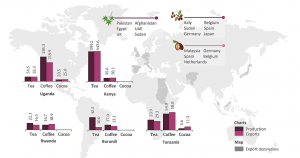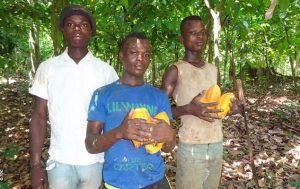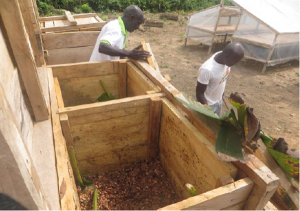
Market study: hot beverages in Kenya and East Africa
The Trade for Development Centre (TDC) and Fairtrade Africa partnered with Euromonitor International to better understand the hot beverages market both in B2B (foodservice and institutions) and B2C (retail) channels, and the potential commercial opportunity for Fairtrade certified brands in Kenya and the wider region (Kenya, Uganda, Burundi, Tanzania and Rwanda). The market research particularly focuses on the Fairtrade products as tea and coffee as the main hot beverages consumed by Kenyans but also on the powdered hot drinks such as hot chocolate.










